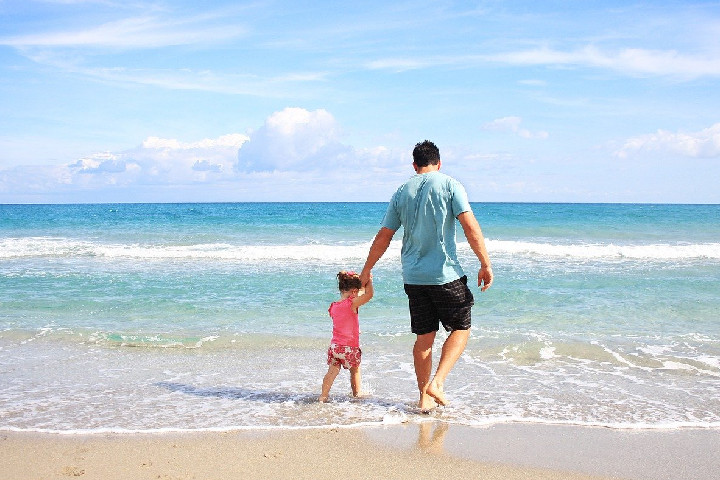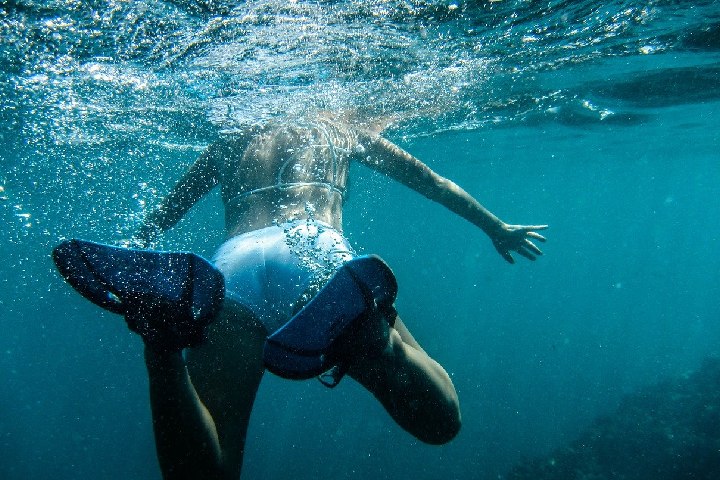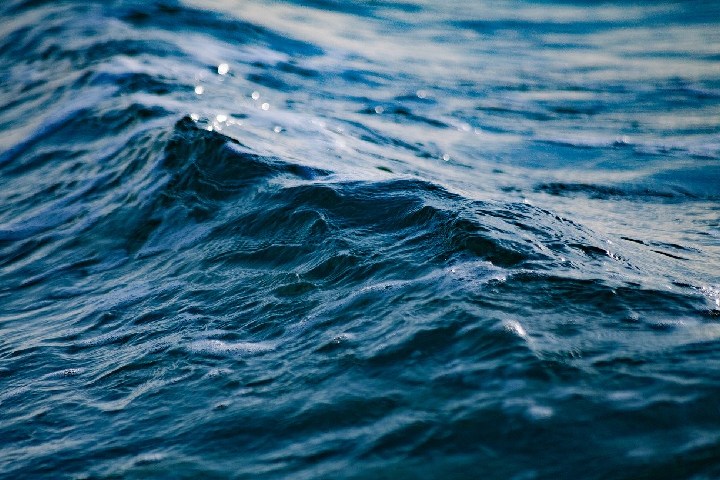Seawater: Being by the sea, bathing in its waters, and enjoying a walk in the open air are undoubtedly beneficial for our bodies. But to what extent? What’s Real in the Medical Benefits of Seawater? Is it safe to drink water?
Seawater has a high concentration of minerals, which makes it especially interesting for our bodies.
It is indisputable (and you will have verified it) to what extent it benefits our body just by walking near the sea (relieves stress and improves mood) and also if we bathe since it favors recovery and relief in many skin pathologies, the joints or the humps.
Some people consume it, and you can do it, but you should never drink the water you collect directly from the sea. Waters of marine origin previously filtered and treated are marketed that you can use in the kitchen. Ask your health food store.
Table of Contents
1. The Sea Breeze Relaxes
Closed environments with electrical appliances are loaded with positive ions, which, contrary to their name, are not good for our health. On the contrary, the sea breeze is loaded with negative ions, stimulating cell renewal, and restoring nervous balance. That is why the small marine drops in the air:
- They give a feeling of well-being.
- They relax.
- They restore the pH of the skin.
- Balances the sympathetic and parasympathetic nervous systems.
2. The Sea is Healthy Air Even in the City
Leaving the cities to breathe along the coast is very beneficial for our bodies. But it is that being by the sea, even in maritime towns, is looking towards an open and decontaminated area.

The sea breeze is a healthier breeze that brings fresh air into the city. It oxygenates us better.
3. Softens and Massages the Skin
The walk along the shore multiplies the effects of a good walk. It must be done on wet sand, more homogeneous, and involves less risk of injury. The water massages the ankles, and the rubbing of the sand becomes a natural exfoliator that removes dead skin and impurities from the skin.
- Leaves feet much softer.
- The sand massage also activates the circulation of the soles of the feet.
- Helps in the wound-healing process.
4. Strengthens the Muscles
If the weather is good, you can dare to go deeper into the water, up to the muscles’ height.
Walk around that area of the beach. By having to lift your legs higher with each stride, you strengthen the muscles of the legs and glutes. Also, the waves provide a massage with the exercise is more complete.
5. Helps the Joints, Skin, and Lungs
It is not just water. Its environment is also very beneficial. The marine environment, with algae, sun, and walks on the beach, is suitable to promote the recovery of rheumatic and respiratory diseases and skin problems.
Trace elements in seawater help detoxify the lungs from the pollution they are subjected to daily in large cities.

It also favors mucus drainage, which is why many nasal sprays are based on their formulation.
The iodine contained in seawater makes walking along the shore a relief for many joint pathologies.
6. Has a Draining Effect
seawater was the solution to multiple ailments (arthritis, digestive system problems) and began marketing water under the name of “Quinton plasma.” Today it continues to be sold. Its laboratories ensure that it regenerates cells and balances the body.
The medical community does not consider it proven to be a drug, but it does recognize its draining effects, among others still under study.
7. Provides Minerals to the Body
The current concept of thalassotherapy is a method of gaining health from seawater. Even so, the treatments are not comparable to those of thermal water, since it does not contain the minerals that give spa water its medical benefits.
“Seawater has a composition very similar to blood plasma. In topical treatment, it has minerals that the body absorbs”.
8. Not All Sea Waterworks
We cannot take any seawater for good. Our seas, to varying degrees, are polluted with all kinds of products. It is not only because of the plastics, unfortunately very abundant and also very visible.
The problem may be fecal bacteria since discharges from large cities go to the sea. Another contamination is by harmful marine plants or remains of industrial spills.

9. It is a Good Cooking Ingredient
Seawater can be a useful ingredient in cooking—a way to salt food in a more natural way.
It can be used to enrich broths, and boil vegetables, or legumes, But its salt concentration must be taken into account. If you have high blood pressure or kidney problems, consult your doctor first.
Consume only bottled water, which guarantees strict controls to eliminate possible bacteria.
10. Helps to Heal
The combination of sea salt and iodine provided by seaweed produces a healing effect. The sea can be useful.
In principle, it has a disinfecting action, although it is true that bacteria could be counterproductive depending on which areas.
In areas with more bathers and shallow beaches, it is not suitable. It has to be in the open sea. There are commercialized bottles of treated seawater that can be applied to the wound without problems. Consult with a specialist.
11. A Good Restorative
“The hypertonic water sea is an ideal tonic. It is already sold prepared and helps to regain hydration. In the case of athletes, it is especially recommended”.
You can not abuse its consumption. Talk to a specialist about whether it is indicated in your case and the best dose for you.
12. Better recovery in the pool
Treatments in seawater pools allow more salt flotation and recovery exercises for different ailments are better done. For this reason, thalassotherapy centers have been extended, offering this type of recovery exercise.
13. It is the Most Natural Saline Solution
Seawater can be used as a spray to clear the nose, or eye drops to wash the eyes.
“What is normally sold are saline solutions that are an imitation of seawater, but only the real treated seawater has the most appropriate composition and is closer to the water of the human body.”
For this type of use, always talk to a specialist before applying it since each case requires a different treatment.

